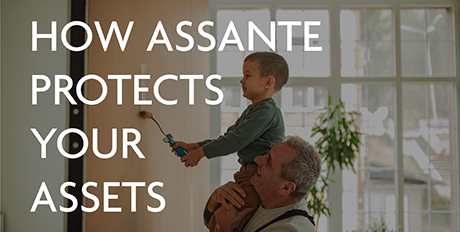Who will execute your estate plan?
Aug 24, 2025

Choosing an executor (liquidator in Quebec) to appoint in your will is an important estate planning decision. Many people instinctively appoint their spouse, siblings or adult children. This may seem logical, but appointing a family member is not always the best option.
While some view being named as executor as an honour or a sign of trust, those who have served in the role know it’s far from being a privilege—it’s a demanding job. Being an executor involves a large amount of time, effort and personal liability. Your executor will be tasked with all matters relating to your death, from sorting through personal belongings and securing your valuables to filing your final tax return and everything in between. It’s a burden not everyone is equipped or willing to take on.
Key factors to consider
When selecting an executor, it is intuitive to consider trust. However, carefully weighing a range of other factors helps to ensure the person you choose is well suited to act. Here are some of the most important:
- Capability and personal circumstances—age, health, maturity, knowledge and personal circumstances all influence a person’s ability (or inability) to be an effective executor. It’s essential to be sure the person you choose is up to the task.
- Family dynamics—try to mitigate the potential for conflict by choosing someone who has a positive relationship with your family members and beneficiaries. This can go a long way toward reducing potential conflict and ensuring smooth administration of your estate.
- Citizenship or residency—if the person you choose is a foreign resident or citizen, there is the potential for additional tax and legal consequences, as well as for extra reporting requirements. Be aware of the implications before naming a foreign resident or citizen.
- Geographic proximity—if the individual lives far from you, the logistics of managing your estate can become more complicated, potentially causing delays and adding costs. Proximity can make the difference between expediency and postponements due to your executor having to travel.
If, after considering all of this, you have someone in mind to be your executor, be sure to speak with them to ensure they are willing and able to act for as long as may be needed when called upon.
I don’t have anyone suitable to appoint—what now?
Those who don’t have anyone suitable to appoint can consider appointing a professional (such as an accountant or legal advisor) with experience in the area, or even look to a corporate executor service offered by a trust company. While there will be a fee, you can negotiate in advance the compensation to be paid. It may be a small price to pay for services, neutrality and a high fiduciary standard.
Regardless of whom you choose to appoint as your executor after considering the factors and looking at your available options, remember you may need to revisit your choice over time as circumstances change.
I would like to extend a special thank you to my colleague, Magali Dussault-Brodeur, wealth planning consultant at CI Assante Private Client, for her invaluable assistance and unwavering support in preparing each blog.
About the Author

Valerie Markidis
As a Wealth Planning Consultant with CI Assante Private Client's Wealth Planning Group, Valerie works closely with our team to provide solutions for our clients in the intergenerational transfer of wealth, with a focus on estate planning. Valerie joined CI Assante in 2022, bringing 14 years of experience at two major trust companies, where she held national responsibility for Wills and actively supported advisors across Canada with questions and interpretations related to Wills, Powers of Attorney and Trusts.
Prior to her tenure with the trust companies, Valerie worked in private practice, where wills and estates were some of her key focus areas. She is lawyer with a Bachelor of Law degree from Osgoode Hall Law School and an Honours BA from Queen’s University.



